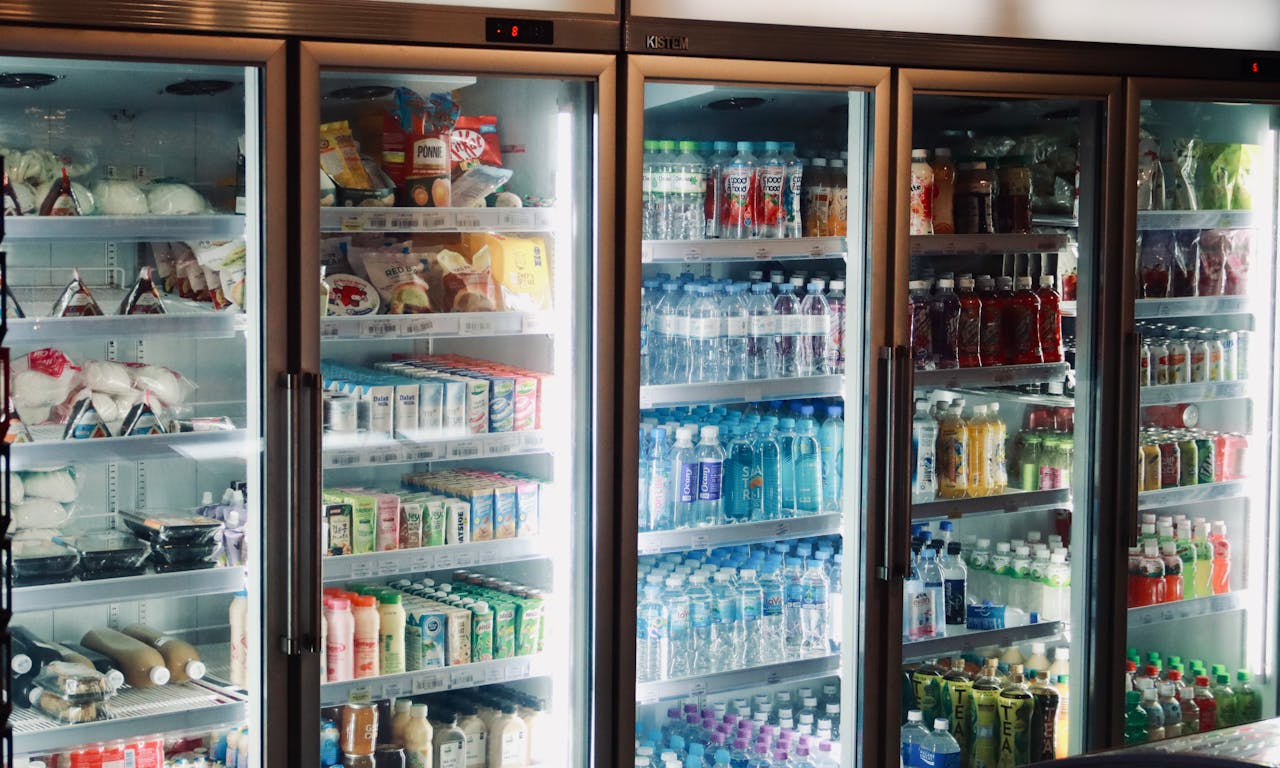
Understanding Commercial Fridge Energy Ratings
Understanding energy ratings for commercial fridges is key to managing costs and enhancing efficiency. With rising utility bills, these ratings help you find appliances that use less energy, saving you money over time. Knowing how to choose efficient fridges is important to keep your business sustainable and reduce your environmental footprint.
Energy ratings let you see at a glance how efficient a fridge is. You can use this information to pick products that won’t spike your energy bills and are good for the environment. Choosing an energy-efficient model might seem like a small step, but it adds up in long-term savings.
Choosing the right fridge involves considering many factors. You need to think about how much you’re willing to spend upfront versus the long-term savings you’ll make. Understanding energy ratings is a crucial part of this process, and it helps you make an educated decision about what's best for your business.
Decoding Energy Ratings
Energy ratings are a helpful guide in choosing commercial fridges, giving you quick insights into their efficiency. These ratings often come in the form of stars or labels, providing an easy-to-understand assessment of a fridge's energy use. The more stars, the more efficient the fridge is at using energy. This system helps business owners make informed decisions, especially when comparing similar models.
An energy-efficient fridge impacts operational costs by lowering electricity bills. Less energy use means your business spends less on running costs, which can be significant savings over time. Efficient models may cost more upfront, but they typically save you money in the long run through reduced utility expenses. This cost-saving benefit becomes increasingly important as electricity prices rise.
Understanding the relationship between energy ratings and operational costs enhances decision-making for your business. A better-rated fridge contributes to lower operating costs, freeing up resources for other critical areas. It also helps reduce the environmental impact of your business by using less power, aligning with more sustainable business practices. Therefore, learning what these ratings mean can lead to financial benefits and contribute to a healthier environment.
Factors Affecting Energy Ratings
Various factors influence the energy ratings of commercial fridges. Understanding these can help you pick models that are not only efficient but also suitable for your needs.
Design features play a significant role in a fridge's energy efficiency. Features such as improved insulation, tighter door seals, and efficient compressors help reduce energy loss and improve overall performance. Doors that close tightly prevent cold air from escaping, while high-quality insulation maintains consistent internal temperatures with less energy.
Technology is another critical factor. Advances in technology have led to units with variable speed compressors and smart sensors, which adapt to different usage patterns, and optimise energy consumption. Features like LED lighting not only offer better visibility inside the fridge but also use less power compared to traditional bulbs, adding to overall energy savings.
When examining energy ratings, consider these design and technology aspects. They not only affect the efficiency but also the user experience. Fridges with advanced technology may offer better temperature control and easier maintenance options, facilitating smoother operations. Keeping these factors in mind will help you choose a fridge that meets both performance and energy efficiency needs.
Choosing the Right Energy Rating for Your Needs
When selecting a commercial fridge, finding the right energy rating involves balancing several factors to meet your needs effectively. First and foremost, consider your budget. While high-efficiency models might be more expensive upfront, they often result in significant savings over time, reducing overall operational costs through lower energy bills.
Efficiency is another key aspect. Evaluate how often the fridge will be used and the volume of goods it will store. Higher ratings are beneficial for fridges that run constantly or when you have large quantities of perishable goods. Assess your specific requirements to determine if investing in a more efficient model will yield advantages in your business setup.
Matching fridge ratings with your business needs involves understanding the demands of your particular industry. For example, a restaurant with frequent transactions may benefit more from a highly efficient fridge than a smaller business with less regular use. Aligning energy ratings with operational needs ensures you choose a fridge that supports productivity while maintaining cost-effectiveness.
Ultimately, the right energy rating balances cost, efficiency, and suitability for your business operations. Making a well-informed choice ensures that your fridge is a valuable asset rather than a liability, aligning with both financial and environmental goals.
Benefits of High-Efficiency Fridges
High-efficiency fridges offer distinct advantages that extend beyond immediate energy savings. Over time, these fridges play a significant role in reducing utility costs. Lower power consumption leads to reduced energy bills, translating to substantial financial benefits for your business.
The environmental impact is another crucial benefit. By choosing high-efficiency models, your business contributes to lowering greenhouse gas emissions, promoting a cleaner, greener environment. This aligns well with global sustainability goals and demonstrates a commitment to responsible practices.
Additionally, improving sustainability within business operations can enhance your brand reputation. Customers increasingly value businesses that prioritise eco-friendly solutions, potentially driving greater customer support and business growth.
High-efficiency fridges also tend to be equipped with advanced features and technology, such as improved temperature control and humidity management. These features help maintain product quality, reduce spoilage, and provide better storage solutions, further contributing to operational efficiency.
Conclusion:
Understanding commercial fridge energy ratings is essential to running a cost-effective and environmentally conscious business. By decoding these ratings, you can make informed choices that align with both short-term and long-term goals. Considering factors such as design, technology, and specific business needs is necessary when selecting a fridge that will enhance your operations while keeping energy consumption in check.
As energy efficiency becomes increasingly important, investing in high-efficiency fridges ensures savings and supports sustainability efforts. These choices are not just about immediate benefits but are investments in a future of reduced costs and improved environmental impact. Choosing the right fridge supports productivity, quality, and business growth by maintaining an optimal balance between efficiency and cost.
To ensure your business is equipped with the best commercial fridge solutions, reach out to Refrigeration Experts. Contact us today to discover how our range of energy-efficient fridges can meet your specific needs and enhance your operations. Make the smart choice for your business and the environment with expert guidance and top-quality products from Refrigeration Experts.
